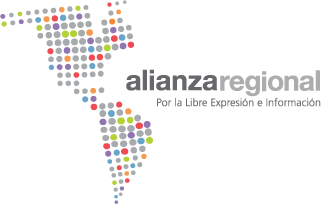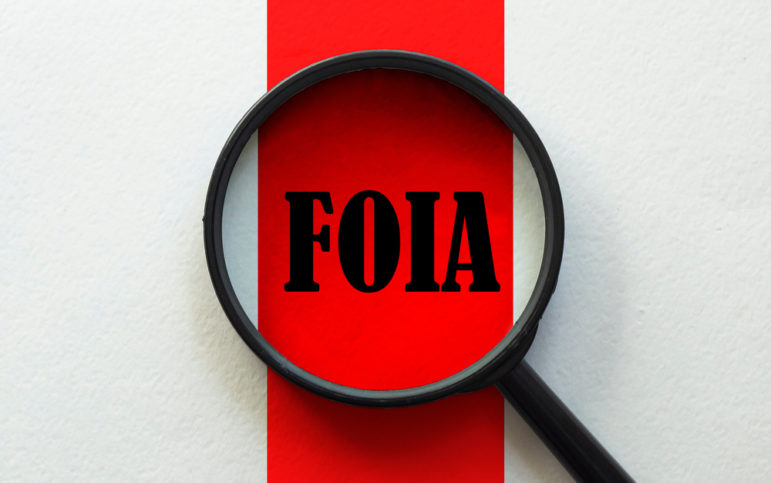

GIJN’s Global Guide to Freedom of Information: Resources
Read this article in
Guide Resource
GIJN’s Global Guide to Freedom of Information
Chapter Guide Resource
GIJN’s Global Guide to Freedom of Information: FOI Tips and Tricks
Chapter Guide Resource
GIJN’s Global Guide to Freedom of Information: Inspirational FOI
Chapter Guide Resource
GIJN’s Global Guide to Freedom of Information: Resources
Chapter Guide Resource
GIJN’s Guide to National Rules on Where Foreigners Can Make FOI Requests
This is part three of our three part series: GIJN’s Global Guide to Freedom of Information.
We’ve located national, regional and international sites filled with advice and information. Note: this is not a complete list of countries with FOI laws. For that information, see The RTI Rating.
Also included are governmental and nongovernmental sites that facilitate the filing of requests online. These have advantages, such as convenience and tracking. Most require registration but are free. They may make your request more public than those made in writing.
Also GIJN’s Guide to Whether Foreigners Can Use National FOI Laws.
Suggestions for new resources are most welcome. You can write GIJN here .
INTERNATIONAL
The Global Right to Information Rating provides country-by-country ratings of the legal framework of freedom of information laws, which were created by the Center for Democracy and Law and Access Info-Europe. The site includes the text of existing FOI laws. The ratings are of the laws, not of their implementation.
The International Conference of Information Commissioners is a membership group for information commissioners, ombudspersons and other bodies charged with overseeing the implementation of Access to Public Information legislation. See list of members here .
Article 19, the London-based freedom of expression group, works on FOI issues worldwide and publishes reports such the July 2017 one which provides a good overview of international FOI scene and a 2015 report on FOI in Southeast Asia.
FOIA Advocates Network is a coalition of FOI activists. The membership list includes names and contact information for national advocacy groups.
Information commissions worldwide are listed on the site of the National Information Commission, Nepal.
The Global Freedom of Expression website at Columbia University has a digest of major national FOI cases in numerous countries. Use filter under “Main Themes.”
Freedominfo.org includes news stories about national FOI developments and access to information and international organizations. Freedominfo.org stopped publishing in July 2017, so some resources may be dated. See a collection of quotes about access to information.
AFRICA
 Africa Freedom of Information Center provides information on FOI laws in Africa.
Africa Freedom of Information Center provides information on FOI laws in Africa.
The Media Institute of Southern Africa also has a page with links to the African FOI laws.
Kenya: Reporting on Good Governance in Kenya.org describes the national and local laws and rules for access to information and also publishes reports on journalists’ experiences. Good graphics, too. Also see a handbook on the Kenyan law developed by the Katiba Institute.
Liberia: InfoLib provides an online mechanism to facilitate FOI requests. Although it’s an independently run service, it can be found under the “Take Action” tab on the website of the Liberian information commission.
Mozambique: Guia do Direito à Informação Para Jornalistas, a 2016 guide to FOI for journalists was prepared by IREX.
Nigeria: R2KNigeria provides solid information about the FOI law. The Nigeria Extractive Industries Transparency Initiative has FOI portal for making online requests. The Bureau of Public Service Reforms has FOI portal , too. The Socio-Economic Rights and Accountability Project in April 2018 published a manual: Using Your Right to Information to Challenge Corruption in the Health, Education and Water Sectors.
Rwanda: Sobanukirwa is a free site facilitating requests, available in English , Kinyarwanda or French .
 South Africa: The Open Democracy Advice Center provides forms for requesting documents under the Promotion of Access to Information Act, and provides assistance. Right2Know is a major transparency advocacy group. ODAC provide assistance on the right of access to information available under the Promotion of Access to Information Act.
South Africa: The Open Democracy Advice Center provides forms for requesting documents under the Promotion of Access to Information Act, and provides assistance. Right2Know is a major transparency advocacy group. ODAC provide assistance on the right of access to information available under the Promotion of Access to Information Act.
Tanzania: The Media Institute of Southern Africa – Tanzania published a short guide on access to information in Tanzania.
Uganda: Ask Your Gov Uganda is a nongovernmental portal that facilitates information requests.
ASIA / OCEANIA
South Asia Right to Information Advocates Network, run through the Commonwealth Human Rights Initiative, provides regional resources and RTI news, with an emphasis on India.
The Transparency Advisory Group was formed by professionals, activists and academics with an interest in transparency and the right to information in the South Asian region. The site links to laws and research reports, but is somewhat out of date.
 The Southeast Asia Press Alliance runs occasional articles on FOI in the region.
The Southeast Asia Press Alliance runs occasional articles on FOI in the region.
Australia: Right2Know provides an automated request platform as well as links to the FOI offices for more than 300 agencies. For official information visit the Office of the Australian Information Commissioner .
Bangladesh: The Information Commission is a government site that provides information on how to file a request. The RTI Resource Center provides resources for those seeking to file a records request with federal agencies.
China: Many resources are available are available from Yale University’s Paul Tsai China Center in English and Chinese, including the 2008 government records access statute.
Hong Kong: The government access site includes the basic legal information. AccessInfo.hk ( Facebook ) provides a request platform. The Ombudsman posts descriptions of FOI cases she handled.
 India: Right To Information: A Citizen Gateway is the Indian government portal for its successful RTI. Requests to the federal government can be made through an online portal. The Central Information Commission is the federal agency that hears complaints of denial to records requests.
India: Right To Information: A Citizen Gateway is the Indian government portal for its successful RTI. Requests to the federal government can be made through an online portal. The Central Information Commission is the federal agency that hears complaints of denial to records requests.
Tea National Campaign for Peoples’ Right to Information is a major advocacy group. Other active groups on RTI are the Commonwealth Human Rights Initiative and Satark Nagrik Sangathan . The RTI Foundation provides news, hosts discussion groups and has a good FAQ section. See also the site Mahiti Adhikar Manch . A variety of services assist with RTI filings for a fee, including RTIonline , which has a Beginners Guide to the RTI Act, 2005 . For deeper background on the RTI act consider the Research, Assessment and Analysis Group . Getting Stories Through FoI Laws, by journalist Shyamlal Yadav was presented at IJAsia18.
Indonesia: From FOI to Leak Platform: IndonesiaLeaks , by Muhammad Kholikul Alim is a presentation for IJAsia18.
 Japan: The non-profit organization Clearinghouse Japan is dedicated to improving FOI in Japan and offers free consultations on the process. Citizens’ Center for Information Disclosure helps those interested in filing requests. The site does not lend itself to language translation, but contact information is available at the bottom of the home page. How should we make the best use of FOI? , was presented by Satoshi Kusakabe of the Mainichi Newspapers at IJAsia18. His book, Freedom of Information as a Weapon: Looking into Power (in Japanese) was published in November, 2018.
Japan: The non-profit organization Clearinghouse Japan is dedicated to improving FOI in Japan and offers free consultations on the process. Citizens’ Center for Information Disclosure helps those interested in filing requests. The site does not lend itself to language translation, but contact information is available at the bottom of the home page. How should we make the best use of FOI? , was presented by Satoshi Kusakabe of the Mainichi Newspapers at IJAsia18. His book, Freedom of Information as a Weapon: Looking into Power (in Japanese) was published in November, 2018.
Korea: Korea Center for Freedom of Information and Transparent Society has resources on the FOI law and stories about its use.
Mongolia: Resources about the access law provided by Globe International .
 Nepal: Basics are found on the site of the National Information Commission . Requesters can also use the portal Ask Nepal . The Freedom Forum advocates on RTI.
Nepal: Basics are found on the site of the National Information Commission . Requesters can also use the portal Ask Nepal . The Freedom Forum advocates on RTI.
New Zealand: Templates for requests are available from the Office of the Ombudsman . A nongovernmental site for online requests is FYI New Zealand .
Pakistan: The Center for Governance and Accountability (CGPA) runs an RTI help desk on 091-5701991 / 091-5702311 Extension 102.
Sri Lanka: The trilingual RTI Commission website was launched in early 2017.
Thailand: The Office of the Official Information Commission .
EUROPE
Q&A on the right of public access to EU documents, a guide prepared by the European Ombudsman providing information on how to exercise the right to information and access public information in the European Union. The guide covers the basics and also explains how the right to freedom of information is interpreted by EU courts.
Guide on Access to EU Documents is a resource produced by Access Info-Europe, available in English, Spanish and French.
EU: Look here to make requests to the EU Commission. Go here to wob the EU Parliament. See list of all EU bodies. This website describes the legal instrument which recognizes a general right of access to official documents held by public authorities, the Tromsø Convention.
Ask the EU is an unofficial site that assists those who want to request information from EU institutions. You must register, but there is no charge assisted with records requests. Requests are public.
Access Info-Europe publishes the Legal Leaks Toolkit, a detailed step-by-step guide to using FOI laws in 58 countries. The toolkit is translated into Albanian, Bosnian, Croatian, Hungarian, Italian, Macedonia, Maldovian, Montenigrin, Serbian, Turkish, and Ukranian.
Right to Know: A Beginner’s Guide to State Secrecy is a Balkan Insight report from March 2019 about FOIA in the Balkans, by Dusica Pavlovic, a Montenegrin investigative journalist at public broadcaster RTCG.
Albania: Good information from the Information Commission.
 Belgium: Transparencia , an unofficial site for making requests online. The information commission has rulings by the commission.
Belgium: Transparencia , an unofficial site for making requests online. The information commission has rulings by the commission.
Bosnia: A thorough guide to making requests is provided by PravoDaZnam.ba , an NGO-run request site.
Bulgaria: The Access to Information Program has information about the FOI law and sponsors training programs for journalists.
Croatia: Imamo Pravo Znati is a nongovernmental request site run by GONG.
Czech Republic: Otevrena Spolecnost provides a simple guide on filing a request with federal and regional authorities. The NGO offers free advice to journalists.

Denmark: The Danish Union of Journalists collects information on making access requests.
France: Information on access rights can be made with the information commission . See the online form here . In 2019 Open Knowledge France launched madada.fr, the French FOIA portal. Madada stands for My Request for Access to Administrative Documents, the legal term for a request to access public information.
Germany: Frag Den Staat! provides an automated request platform to assist those who want to request information from German authorities. Also see the FOI section on the website of the privacy and information commissioner.
Hungary: A good primer on the Hungarian law was created by TASZ, the Hungarian Civil Liberties Union. KiMitTud is a nongovernmental site for making requests.
Iceland: Legal information and rulings by the Information Commission.
 Ireland: Good fundamental information on the government’s Citizens Information page and from the Office of the Information Commissioner . Also see a 2020 guide from thejournal.ie, especially on access a environmental information. Freedom of Information Law is a project of University College. Also, A Beginner’s Guide to FOI by journalist Ken Foxe.
Ireland: Good fundamental information on the government’s Citizens Information page and from the Office of the Information Commissioner . Also see a 2020 guide from thejournal.ie, especially on access a environmental information. Freedom of Information Law is a project of University College. Also, A Beginner’s Guide to FOI by journalist Ken Foxe.
Italy: Diritto Di Sapere has created an online system to make requests. Government information on transparency is here .
Macedonia: Sloboden Pristap is a nongovernmental site for making requests.
Norway: Requests can be made through the government’s Electronic Public Records system (OEP) in English or Norwegian . Not all public sector agencies participate in OEP.no, so Tarjei Leer-Salvesen, a journalist at Fædrelandsvennen, together with a coder at the newspaper, developed a tool to access records held by the police, the defense sector, the public universities and even the Norwegian Church. Check out Innsyn.no. in English and Norwegian .)
Portugal: The Comissão de Acesso aos Documentos Administrativos oversees administration of Portugal’s FOI law and offers courses on the law.
 Romania: NuVaSuparati is a nongovernmental website for making requests.
Romania: NuVaSuparati is a nongovernmental website for making requests.
Russia: A page on the website of the group Team 29 has entries on a variety of access topics, including using databases about companies and how to get state information about apartments and land. Team 29 provides legal support for those “trying to prevent to write the truth about the officials and the state.”
Serbia: Information about what can be requested is included on the website of the information commissioner. Also check “publications” and the comprehensive “ information booklet ” in English.
 Spain: The only way to make requests under the Spanish law is via the government transparency portal , for which you need an electronic ID.
Spain: The only way to make requests under the Spanish law is via the government transparency portal , for which you need an electronic ID.
Sweden: AllmanHandling.se provides sophisticated guidance on FOI strategy with an option for asking questions of Per Hagström, who created the site on behalf of the Publishers Association. This “Openness Forum” also appears on the website for the Publishers Association. FrågaStaten is an unofficial site for making FOI requests and includes a useful section on “making requests.”
Switzerland: Öffentlichkeitsgesetz provides an automated request platform to assist those who want to request information from Swiss authorities. The reporter-operated site also hosts a whistle-blower tip line, a trove of previously-requested pubic records and a great tipsheet on requesting documents.
Ukraine: Dostup do Pravdy (Access to Truth) is a nongovernmental site for making requests.
 United Kingdom: What Do They Know? provides an automated request platform to assist with requests for UK information. You must register, but there is no charge assisted with records requests.The UK information commissioner provides advice, including a dos and don’ts list. The Scottish Government has guidance for requesters. The Scottish FOI Ombudsman runs a Your Rights page with contacts for all bodies covered by the FOI law. Also check out a page of tips for requesters. The Campaign for Freedom of Information offers FOI training courses.
United Kingdom: What Do They Know? provides an automated request platform to assist with requests for UK information. You must register, but there is no charge assisted with records requests.The UK information commissioner provides advice, including a dos and don’ts list. The Scottish Government has guidance for requesters. The Scottish FOI Ombudsman runs a Your Rights page with contacts for all bodies covered by the FOI law. Also check out a page of tips for requesters. The Campaign for Freedom of Information offers FOI training courses.
LATIN AMERICA / CARIBBEAN
 Alianza Regional por la Libre Expresión e Información is a network of transparency activists in Latin America.
Alianza Regional por la Libre Expresión e Información is a network of transparency activists in Latin America.
The Special Rapporteur for Freedom of Expression at the Organization of American States prepares periodic reports evaluating FOIA in the region.
OAS Model Law : The OAS in 2o20 endorsed a new model FOI law.
Red de transparencia y acceso a la información is a network representing transparency and access to public information agencies in Latin America.
The Media Institute of the Caribbean in 2023 launched a help desk for journalists, civil society organizations, and private individuals to get guidance on FOI/Access to Information requests.
Argentina: The online site for requests is here .
Brazil: E-SIC is the official government site for making online requests at the national level.Some state and localites also offer online request options. Fórum de Direito de Acesso a Informações Públicas provides a simple guide and form letter for filing records requests with government agencies, plus news about Brazilian transparency. Achados e Pedidos, launched by Abraji and Transparency Brazil is a crowd-sourced repository for FOI requests and answers. See 2019 article about Don’t LAI to Me, a newsletter service to educate other journalists. In 2021, Ficam Sabendo, an independent data agency specializing in the Access to Information Act (LAI), launched WikiLAI, a detailed resource about the law and how to use it. To check out the latest updates, go to ” Recent Changes ” in the left-hand side menu.
Chile: Portal Transparencia is the government site for making online FOI requests. ProAccesso Coalition advocates on transparency.
 Columbia : Queremos Datos is NGO-run request portal.
Columbia : Queremos Datos is NGO-run request portal.
Guatemala: Guateinformada is an online FOI request site. Users submit requests via the site and answers will be publicly posted there as well.
Honduras: Sielho is the government site for making request.
Mexico: Sistema Infomex is an autonomous agency established to facilitate an online request system. The site also provides links to state and municipal governments.
Paraguay: Portal de Solicitudes de Informacion Publica is the government online request portal.
Peru: A collection of useful documents on the Instituto Prensa y Sociedad website.
Uruguay: The government request portal is Sistema de Acceso a la Información Pública. Also available is the nongovernmental automated request platform Que Sabes?
MIDDLE EAST/NEAR EAST/CAUCASUS
Access to Information in the Arab World: A publication by the Arab Reporters for Investigative Journalism, focusing on Jordan,Tunisia and Yemen, with some information on Sudan, Lebanon, Morocco, Palestine and Egypt, too. العربية
 Armenia: Freedom of Information Center (Armenia) offers a simple guide on FOIA in Armenia.
Armenia: Freedom of Information Center (Armenia) offers a simple guide on FOIA in Armenia.
Georgia: Institute for Development of Freedom of Information provides a guide to filing a request with government authorities as well as a database of previously requested documents.
Iran: A government online system started in June 2017. Article 19 in 2020 publishes a guide to the law, including a tipsheet for journalists.
Israel: AskData is a nongovernmental site facilitating requests. The Movement for Freedom of Information provides a guide to filing records requests and provides links and contact information to the offices for a number of key institutions.
Jordan: The Jordan Transparency Center is an active organization on FOI.
Tunisia: An online platform (in French and Arabic) to promote access to information was created by the Tunisian Association of Public Controllers (ATCP). It helps requesters make submissions to government agencies and shows all previous information requests. See 2018 article about it (in French).
NORTH AMERICA
Canada: The government’s entry point web site provides basic information and directions for making requests throughout the government, including at some agencies that accept online applications. The Open Government portal allows searches of summaries of all FOI requests. For previously released documents, requests can be made outside the FOI process that take much less time. The Office of the Information Commissioner posts a lot of material on the national law. Open by Default is a searchable database run by The Investigative Journalism Foundation
containing many Canadian government documents released through access to information requests.
 United States: Foia.gov provides direct links to the FOIA offices for major federal agencies. FOIAOnline is an online request system used by about 20 agencies. The Reporters Committee for Freedom of the Press has a variety of FOIA materials and services, including iFOIA , an online request system, with a hotline for advice. The group also runs an information-rich FOIA Wiki and in 2019 published an updated Introduction to the Open Government Guide , that includes information on state laws. A Guide to Accessing Public Records for the First Time includes basic information, tips, statistics and links. It was prepared by Communications@Syracuse, Syracuse University’s online master’s in communications.
United States: Foia.gov provides direct links to the FOIA offices for major federal agencies. FOIAOnline is an online request system used by about 20 agencies. The Reporters Committee for Freedom of the Press has a variety of FOIA materials and services, including iFOIA , an online request system, with a hotline for advice. The group also runs an information-rich FOIA Wiki and in 2019 published an updated Introduction to the Open Government Guide , that includes information on state laws. A Guide to Accessing Public Records for the First Time includes basic information, tips, statistics and links. It was prepared by Communications@Syracuse, Syracuse University’s online master’s in communications.
Muckrock facilitates online requests (for a fee), highlights successful requests and spearheads special FOI projects and its Q&A forum often deals in issues that requesters have run into, with answers from Muckrock staff. See article on FOI’ing the White House. And this guide to requesting FBI files. And there’s a map-guide to some state law issues.
The National Security Archive publishes Effective FOIA Requesting for Everyone and its Unredacted blog posted How to File a FOIA Reques. The National Freedom of Information Coalition provides state-specific resources and provides sample language for both state and federal requests. The Student Press Law Center has a unique letter generator for stare request.
and provides sample language for both state and federal requests. The Student Press Law Center has a unique letter generator for stare request.
The Society for Professional Journalists has a “ step-by-step guide ” and a linked list of state FOI offices, state advocacy groups and many other resources. SPJ also offers help from a FOIA attorney. The national FOIA ombudsman’s website has basic information on filing and describes assistance it can provide.
The Justice Department’s Office of Information Policy in 2019 published the Department of Justice Guide to the Freedom of Information Act, a comprehensive treatise on the FOIA and contains an analysis of key judicial opinions on the FOIA as well as relevant guidance from OIP.
Sqoop is a search engine, free for journalists, that compiles filings at the Securities and Exchange Commission, patent applications, court dockets, and more.
The complete series from GIJN’s Global Guide to Freedom of Information can be found here:
- Introduction
- Tips and Tricks : A collection of the best advice on how to use access laws.
- Inspirational FOI : Ideas of what to ask for and stories about journalists active in using FOI.
- Global Resources: Country-by-country guidance and links to national resources.
 This guide was put together by Toby McIntosh , the director of GIJN’s resource center and the editor of FreedomInfo.org , a nonprofit website based in Washington, DC, on international transparency laws. He was with Bloomberg BNA for 39 years and has filed numerous US FOI requests and written about FOI policies worldwide. He is a steering committee member of FOIANet , an international network of FOI advocates.
This guide was put together by Toby McIntosh , the director of GIJN’s resource center and the editor of FreedomInfo.org , a nonprofit website based in Washington, DC, on international transparency laws. He was with Bloomberg BNA for 39 years and has filed numerous US FOI requests and written about FOI policies worldwide. He is a steering committee member of FOIANet , an international network of FOI advocates.













